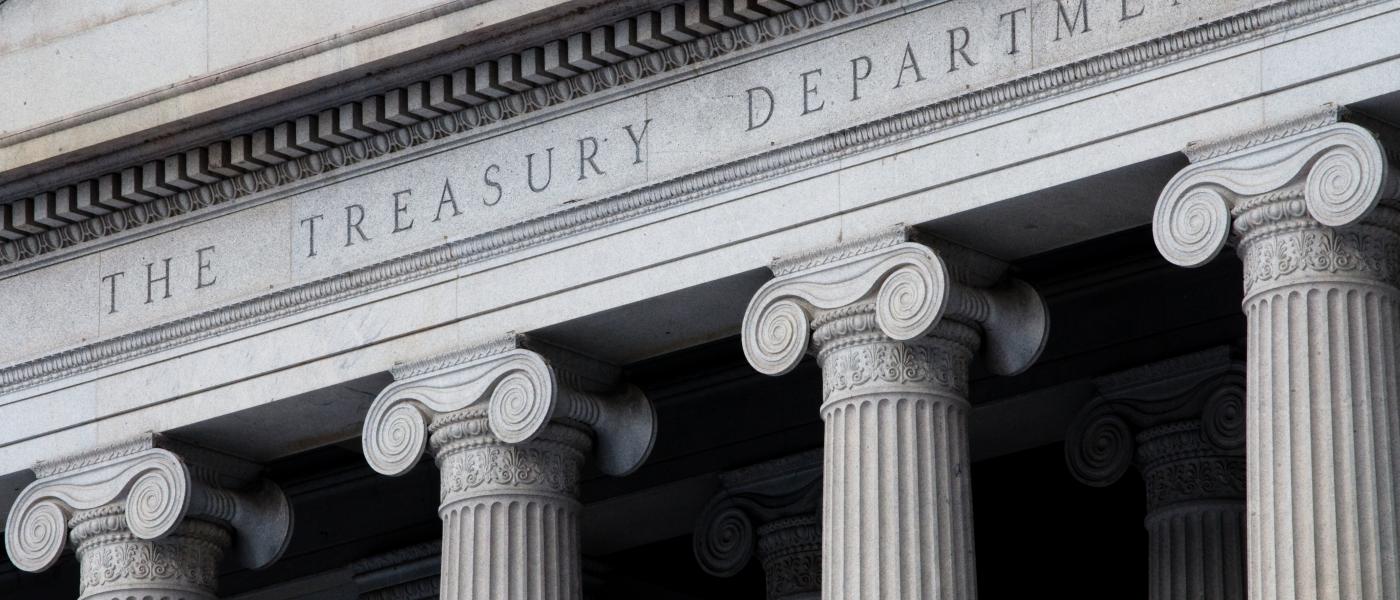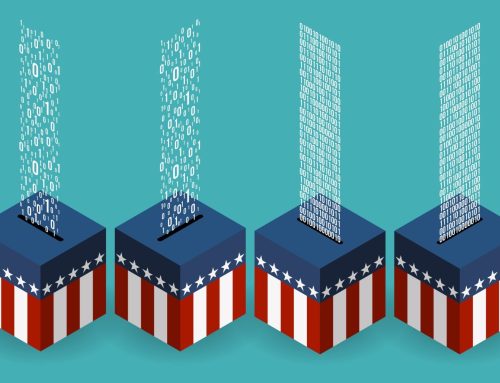Executive Summary: Mobilize the Regulatory Arsenal
The incoming Biden administration has signaled through speeches, articles, and interviews that one of its top policy priorities will be combating corruption and kleptocracy.1 With Russia and China’s increasing usage of strategic corruption and malign finance as geopolitical weapons, and with publics around the world—including in the United States—angry about economic inequality and perceived corruption at home, anti-corruption offers a unique opportunity to unify U.S. foreign and domestic policy. Diplomats and lawmakers agree that cracking down on corruption may be the most viable way to restore American leadership by meeting demands for accountability from citizens all over the world.2
Corruption will be the topic of a dedicated special session of the UN General Assembly in June.3 The issue should get support from leaders at a G7 summit in the U.K. around the same time.4 Fighting corruption will also be one of the three areas for new country commitments at the Summit for Democracy that President-elect Joe Biden plans to host during his first year in office.5 At that summit, the U.S. commitment will be a “presidential policy directive that establishes combating corruption as a core national security interest and democratic responsibility.”6
Making this U.S. and international anti-corruption campaign a lasting success will require more than words. In the months ahead, while the administration’s top leadership and the nation’s public health and economic experts are focused on ending the pandemic and rebuilding the economy, the U.S. national security and financial enforcement community should get to work laying the groundwork for a raft of powerful anti-corruption executive actions to be announced in time for the Summit for Democracy. Concurrently, U.S. diplomats should leverage those plans to insist that countries attending the summit make similarly hard commitments, setting a high bar for admission.7
Regulatory rulemaking by the U.S. Treasury Department could usher in several landmark reforms that have been recommended for many years by financial enforcers, multilateral standard-setting bodies, and anti-corruption watchdogs. This policy opportunity is possible because the reforms never overcame opposition by special interests during the period before corruption became a leading national security threat roughly five years ago, and then they were generally not prioritized by the Trump administration.
The most potent achievable action available would be for Treasury to set rules requiring several types of professional service providers that enable corruption to institute anti-money laundering controls whereby they would have to identify their ultimate customers and start alerting Treasury of suspicious activity, as is required of U.S. banks.8 Of the industries enabling corruption by helping wealthy clients hide money, ten could be regulated immediately by revoking regulatory exemptions to the Bank Secrecy Act, including real estate agents, private equity and hedge funds, sellers of yachts and airplanes, and seven other types of exempted financial institutions.9 Other key enablers would require new regulatory determinations with strong legal and political backing, such as lawyers, accountants, company formation agents, and art dealers.
Treasury’s Financial Crimes Enforcement Network (FinCEN), which administers the Bank Secrecy Act, must write stringent regulations to implement the newly mandated beneficial ownership registry, resisting pressure by special interests to water it down. Treasury should also leverage concerns about the recently leaked “FinCEN Files” to work with Congress on a major investment in FinCEN, potentially on the scale of the seven-fold jump in budgetary resources needed by Treasury to implement recent reforms to the Committee on Foreign Investment in the United States (CFIUS).10
Treasury should publish its first-ever National Corruption Risk Assessment about the financial networks of kleptocracies and oligarchs, reviewing case studies and methods to assess vulnerabilities and risk. Treasury should create a cross-border payments database and make financial institutions scrutinize politicians’ accounts more closely. Treasury should continue supporting two policy initiatives that have developed strongly to pressure kleptocracies in the past couple years by internationalizing Global Magnitsky sanctions and collaborating with the International Monetary Fund on corruption engagement.
The U.S. Treasury Department is uniquely positioned to roll out these and other policy, regulatory, enforcement, and diplomatic actions in the fight against corruption, because it is the only part of the U.S. government with a foothold in each area of domestic and international finance that will be key to rooting dirty money out of the global financial system and applying pressure on kleptocrats and their oligarch proxies. Many of Treasury’s most highly developed capabilities have grown out of past fights against top national security threats, such as terrorist financing. The two months following the September 11 attacks witnessed one of the most energetic and well-coordinated performances in Treasury Department history. With Treasury not yet organized and coordinated around anti-corruption, achieving anything like past feats would require Treasury to start by establishing a small team devoted exclusively to this new mission.
Specifically, the Treasury Under Secretary for Terrorism and Financial Intelligence (TFI) should appoint a counselor dedicated to developing and advancing anti-corruption initiatives, from expanding the coverage of the U.S. anti-money laundering regime to prioritizing the threats of strategic corruption and malign finance across Treasury’s policy, intelligence, and enforcement efforts. Some of these projects could bear fruit in 2021, while others need longer-term development of capabilities to find kleptocrats’ money hiding within the financial system and prepare policy options to confiscate, sanction, or reveal it.
The TFI anti-corruption counselor, who should be designated as early as possible in the administration, should have a staff of two and a mandate to coordinate with and leverage resources across the four principal TFI offices, while also cooperating with Treasury’s Office of International Affairs. And while the White House National Security Council should lead the overall fight against kleptocracy and corruption, the TFI anti-corruption counselor should serve as Treasury’s senior working-level point of contact for collaboration between Treasury and the rest of the U.S. government, as well as with international partners, civil society, and Congress.
Combating corruption and kleptocracy will be one of the top priorities of the Biden administration, and Treasury has the resources to start delivering major results quickly. But to do so it must coordinate throughout the Treasury Department and with external partners to roll out big executive actions in 2021.
- See Vice President Joe Biden, “The Power of America’s Example: The Biden Plan for Leading the Democratic World to Meet the Challenges of the 21st Century,” Speech, New York, NY, July 11, 2019, The Graduate Center at CUNY; Joseph R. Biden, Jr., “Why America Must Lead Again,” Foreign Affairs, March/April 2020; Natasha Bertrand, “The inexorable rise of Jake Sullivan,” Politico, November 27, 2020.
- See Samantha Power, “The Can-Do Power,” Foreign Affairs, January/February 2021; Tom Malinowski, Anti-Corruption Advocates: What to expect from a Biden Presidency, International Anti-Corruption Conference, December 3, 2020, 20:41.
- See UNGASS 2021, “Special session of the General Assembly against corruption.”
- See Bond, “The UK 2021 G7: Civil Society priorities, November 12, 2020.
- See Biden, 2020.
- Biden, 2020.
- See Malinowski, 30:14.
- See Malinowski, 19:34.
- 67 FR 21113, Apr. 29, 2002, as amended at 67 FR 67549, Nov. 6, 2002; 67 FR 68935, Nov. 14, 2002; 73 FR 1976, Jan. 11, 2008.
- New appropriated resources requested by Treasury to administer CFIUS have increased from $6 million in FY 2018 to more than $44 million in FY 2021 (although $20 million of those up-front outlays are expected to be recouped by new user fees). See U.S. Treasury Department, “Congressional Budget Justification and Annual Performance Report and Plan for CFIUS,” FY 2020, pp. 4; U.S. Treasury Department, “Congressional Budget Justification and Annual Performance Report and Plan for CFIUS,” FY 2021, pp. 4.





